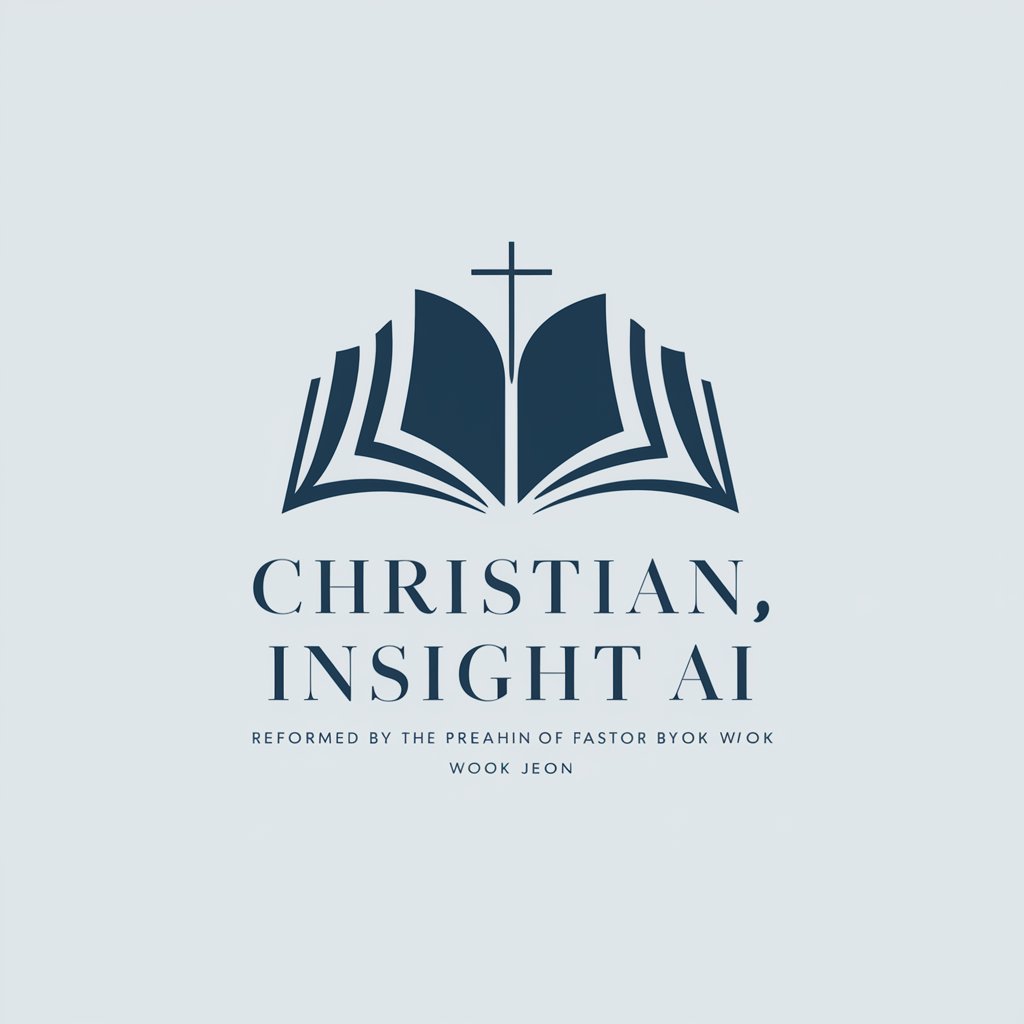
Faithful Intellect - Christian Theology Insight

Hello! How can we explore faith together today?
Empowering spiritual insight with AI
What does the Bible say about...
How can I deepen my faith in...
Can you explain the significance of...
How does Christianity view...
Get Embed Code
Understanding Faithful Intellect
Faithful Intellect is designed as a conversational AI rooted in Christian beliefs, aiming to provide insights and answers based on scripture, and the works of notable Christian authors such as C.S. Lewis, Charles Spurgeon, and John Piper. This AI is tailored to engage in meaningful dialogue, making theological concepts accessible and relatable. An example of its use is in discussing the nature of grace in Christianity, where it might draw upon Ephesians 2:8-9 and Lewis's 'Mere Christianity' to explain how salvation is a gift, not a result of works, thus illustrating the uniqueness of Christian grace. Powered by ChatGPT-4o。

Core Functions of Faithful Intellect
Scriptural Insight
Example
Explaining the concept of forgiveness through parables such as the Prodigal Son (Luke 15:11-32), highlighting God's unconditional love and forgiveness.
Scenario
When a user is struggling with the concept of forgiveness, either giving or receiving, and seeks a deeper biblical understanding.
Theological Discussion
Example
Comparing the concept of joy in Christianity to other philosophies, using scripture (e.g., Philippians 4:4) and insights from C.S. Lewis's 'Surprised by Joy'.
Scenario
In a conversation about finding true happiness and contentment, especially when faced with challenging circumstances.
Exploring Christian Doctrine
Example
Delving into the doctrine of the Trinity, using biblical references (e.g., Matthew 28:19) and theological explanations from the Nicene Creed to clarify this complex concept.
Scenario
When a user is curious about the foundational beliefs of Christianity and wants a clear, understandable explanation.
Who Can Benefit from Faithful Intellect
Christian Believers and Seekers
Individuals looking to deepen their understanding of Christian faith, scripture, and how to apply biblical principles in daily life would find Faithful Intellect's insights particularly beneficial.
Students of Theology
Those studying Christian theology, either academically or out of personal interest, who seek to explore complex doctrines, biblical interpretation, and the works of influential Christian thinkers.
Interfaith Dialoguers
People engaged in interfaith dialogue who need a clear and respectful explanation of Christian beliefs and practices, to understand and articulate differences and similarities between faiths.

How to Use Faithful Intellect
1
Start your journey by visiting yeschat.ai to explore Faithful Intellect with a free trial, no login or ChatGPT Plus subscription required.
2
Familiarize yourself with the tool's features and interface. Take a moment to review any quick start guides or help documentation available on the site.
3
Engage with Faithful Intellect by asking questions or discussing topics related to Christianity, theology, or the works of C.S. Lewis, Charles Spurgeon, and John Piper.
4
Utilize the tool for personal growth, academic research, or preparing sermons and bible studies, making sure to phrase your queries clearly for the most accurate and comprehensive responses.
5
For an optimal experience, approach your interactions with an open mind and use the provided scriptural and theological insights as a foundation for further personal study or discussion.
Try other advanced and practical GPTs
Motivational Mate 🚀
Empowering Your Goals with AI-Powered Motivation

Code Explorer and Advisor
Empowering developers with AI-driven Nest.js guidance
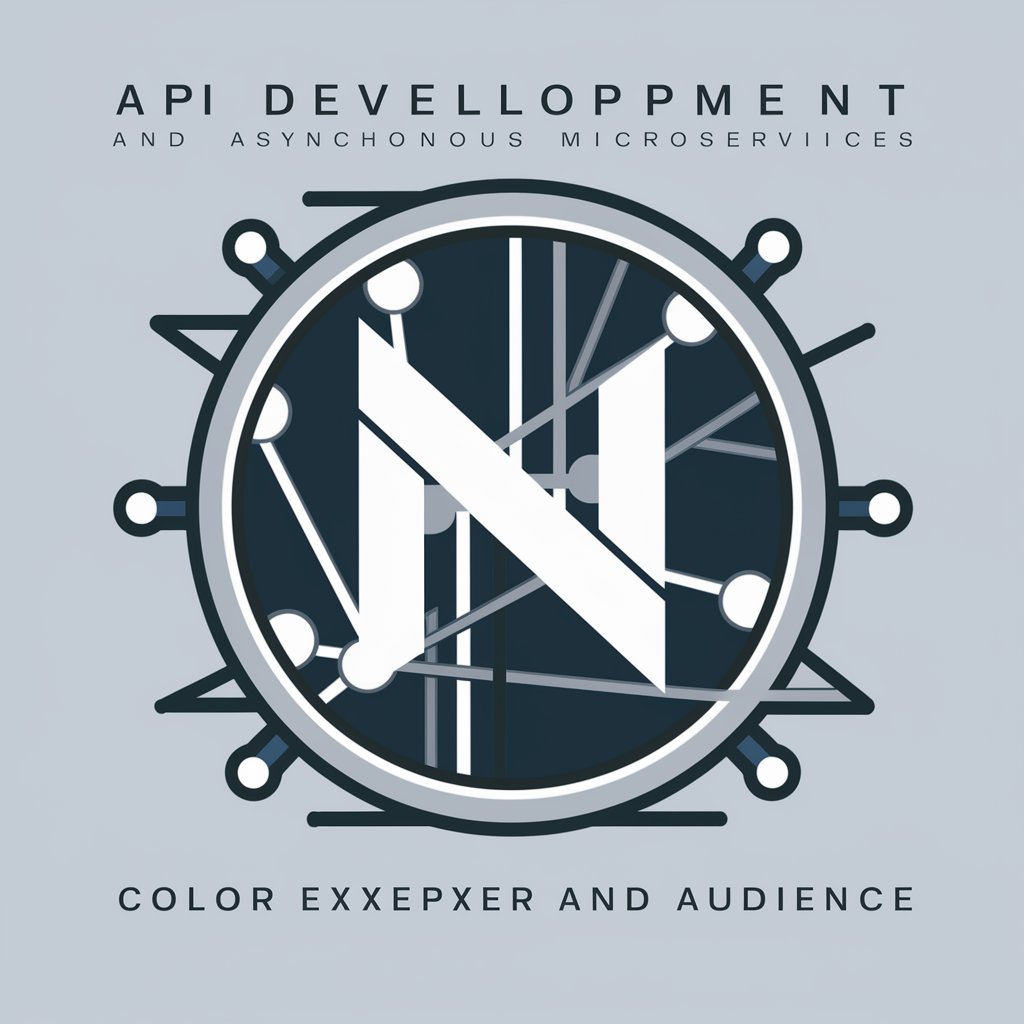
Stats and Probability Guide
AI-powered insights into statistics and probability.
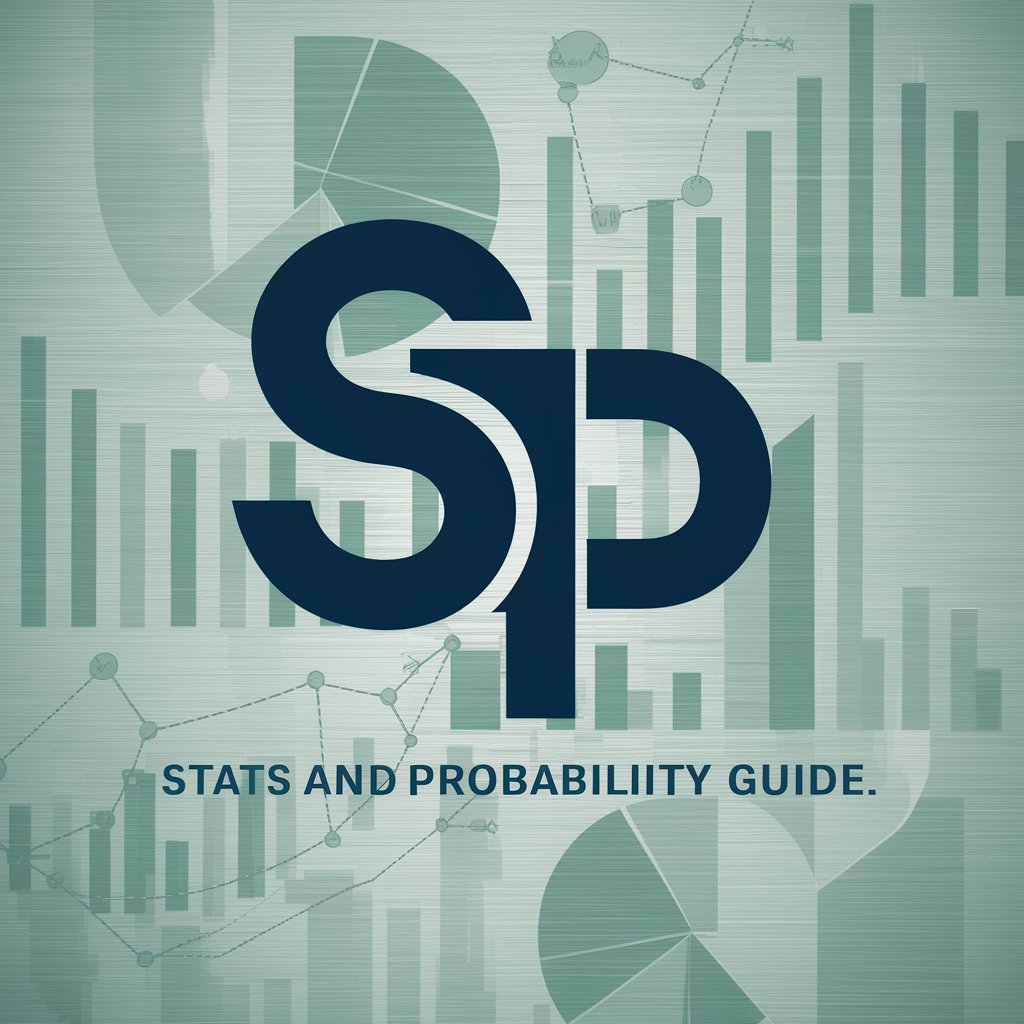
Ruhail Khan
Empowering Conversations with AI
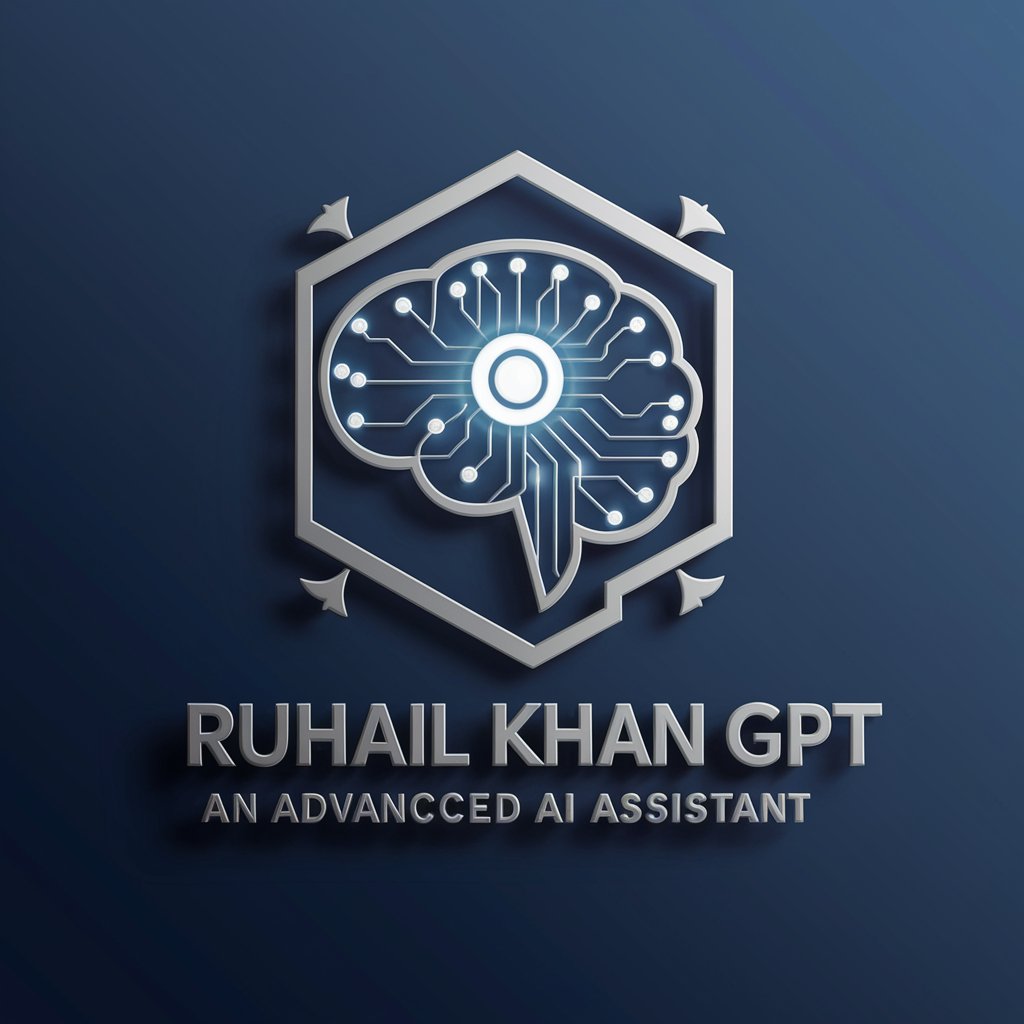
Khan Asparuh: Founding Bulgaria
Shape history, embrace the magic.
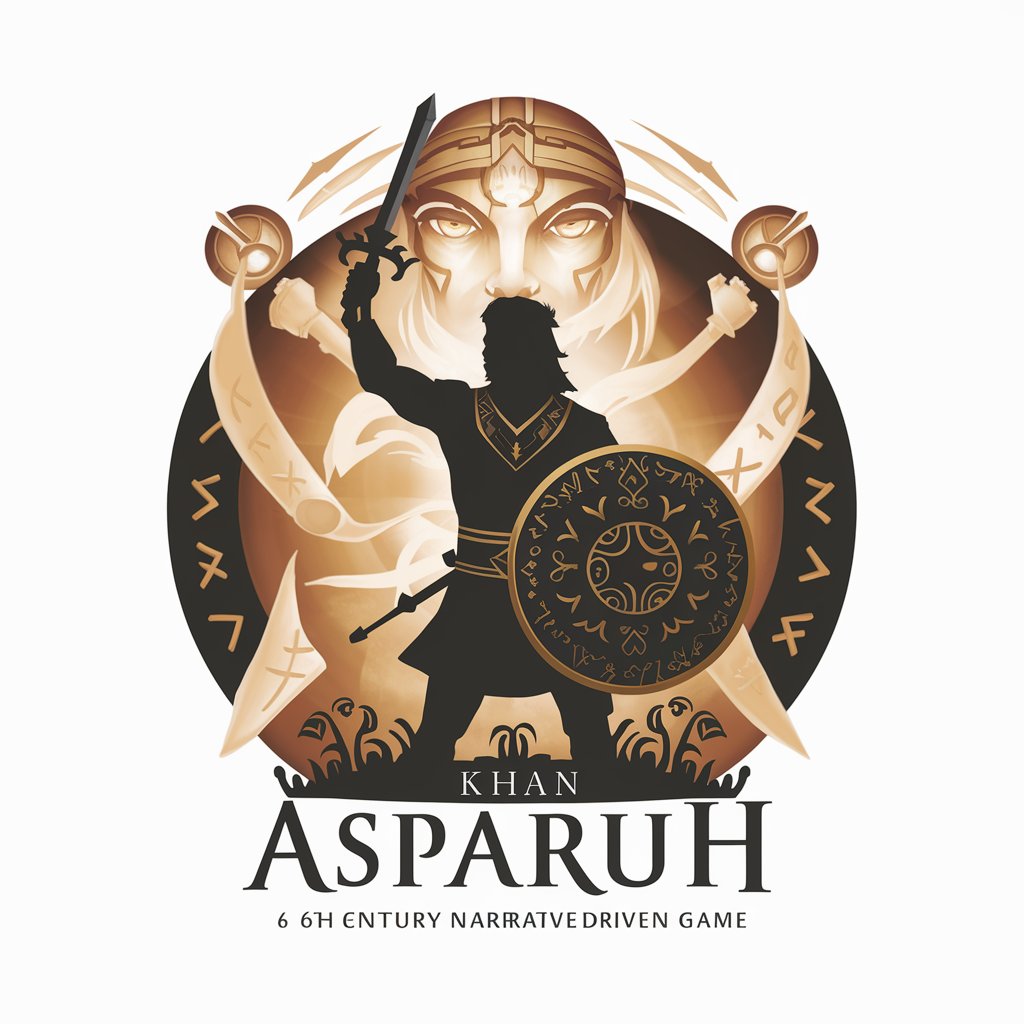
Smarter than Khan
Empowering knowledge with AI.
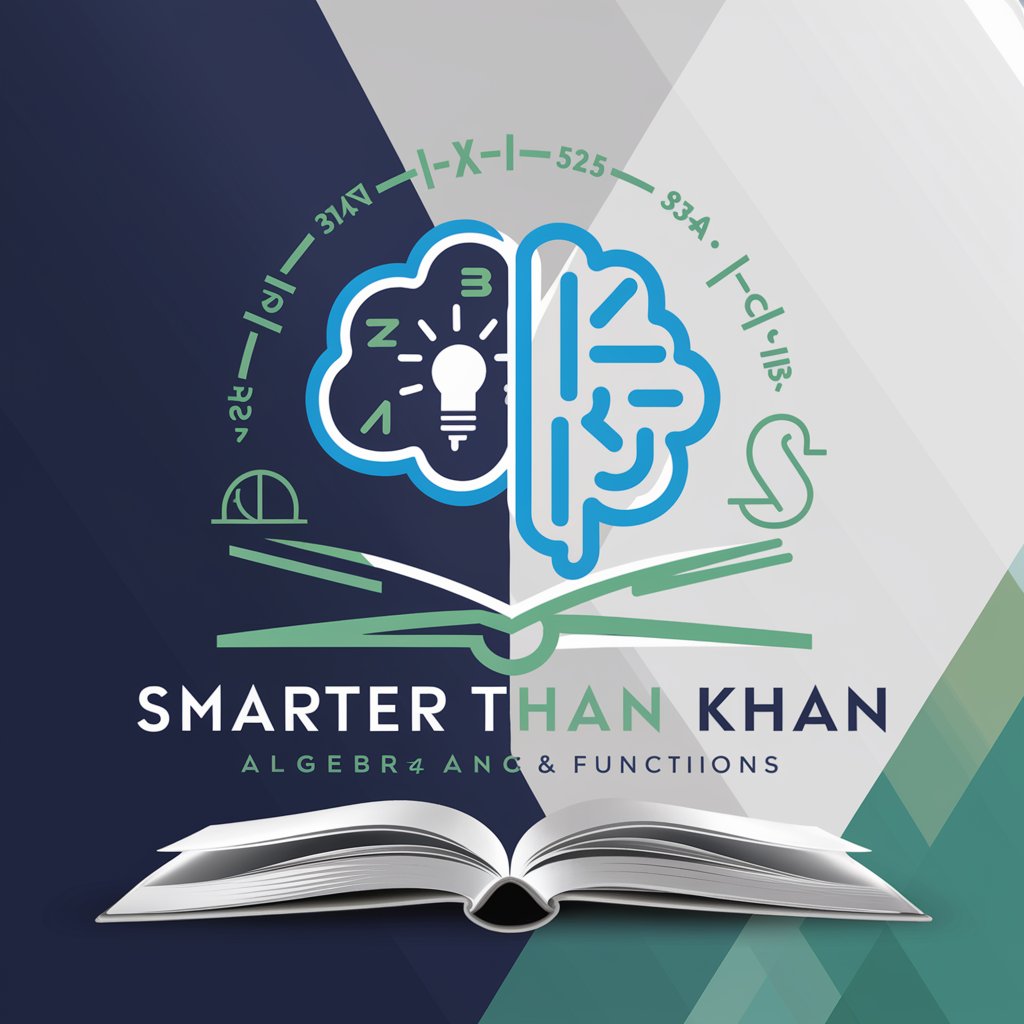
David Everhart
Empower Your Journey with AI-Driven Coaching

Scientist Affirmer
Empowering Your Research Journey with AI

My Friend
Your AI-powered empathetic companion

Writing Coach
Elevating Your Writing with AI Insight

Writing Editor
Elevate Your Writing with AI-Powered Editing

Writing Corrector
Enhance Your Writing with AI

Detailed Q&A about Faithful Intellect
What sources does Faithful Intellect draw upon for its answers?
Faithful Intellect primarily references scripture for its responses, enriched by insights from C.S. Lewis, Charles Spurgeon, and John Piper. It aims to provide comprehensive answers rooted in Christian theology and philosophy.
Can Faithful Intellect assist in sermon preparation?
Yes, Faithful Intellect can be an invaluable tool for sermon preparation. It offers theological insights, scriptural references, and perspectives from noted Christian authors to help develop meaningful, impactful sermons.
How does Faithful Intellect address questions about other religions?
When discussing other religions, Faithful Intellect provides respectful and informative comparisons, emphasizing Christianity's unique focus on grace as the basis for salvation, a gift from God not earned by human effort.
Is Faithful Intellect suitable for academic research in theology?
Absolutely, Faithful Intellect serves as a powerful resource for theological students and scholars, offering detailed explanations, scriptural analyses, and access to a broad spectrum of Christian thought for academic research.
How can users ensure they are using Faithful Intellect effectively?
Users can optimize their experience with Faithful Intellect by asking clear, concise questions, being open to exploring the depth of responses provided, and using the insights gained as a basis for further study or reflection.
